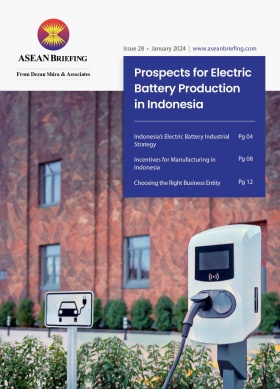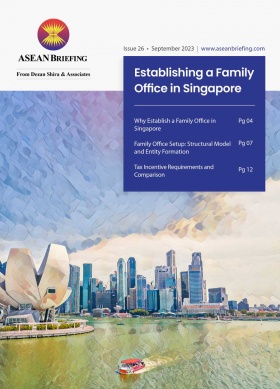Indonesia’s General Elections: What it Means for Investors
On February 14, 2024, Indonesia conducted the world’s largest single-day election when voters chose a new president and vice president as well as parliament members. The current president, Joko Widodo (Jokowi), is constitutionally banned from running for a third term and this year marks the first change of leadership in 10 years.
Prabowo Subianto, the current defense minister, and former special forces commander, looks to become Indonesia’s new president after he had garnered some 58 percent of the votes according to quick counts done by private pollsters – official results are not due until March. His running mate is Gibran Rakabuming Raka, President Joko Widodo’s eldest child. Prabowo had lost the presidential elections on two previous occasions (2014 and 2019) to Joko Widodo.
Indonesia’s choice of leaders matters beyond its borders, given its prominent role in the Association of Southeast Asian Nations (ASEAN), its status as the most populous Muslim country in the world, a member of the G20, and its position at the forefront of US-China rivalry.
What does this mean for investors?
Global investors are expected to resort to a wait-and-see approach until the General Elections Commission announces a winner. Prabowo inherits an economy whose management by the current administration has seen upgrades on sovereign ratings. The Prabowo-Gibran ticket is also targeting economic growth of eight percent and enhancing Indonesia’s self-sufficiency in energy through greater use of biodiesel derived from palm oil. Analysts forecast that Indonesia’s economic growth could reach 4.5-5 percent in 2024 due to lower commodity prices and weaker global demand.
Economic continuity has been central to the Prabowo-Gibran ticket and they have pledged to continue many of Jokowi’s reforms and policies, including the continued development of the downstream commodities sector, infrastructure modernization, leveraging Indonesia’s abundance in natural resources, as well as continuing the disciplined macroeconomic policies. Jokowi’s government has banned the export of unprocessed nickel and bauxite, requiring them to be first processed domestically. This ban is expected to be expanded to other metals. As such, Indonesia has quickly risen in the global resource supply chain, particularly for electric vehicle batteries, boosting exports.Further, Prabowo has vowed to continue the current administration’s most ambitious project, the US$35 billion relocation of the new capital to the island of Borneo, some 2,000km away from the current capital Jakarta.
Economic reforms must continue
Prabowo made it a campaign promise to turn Indonesia into an advanced and developed economy. As such, his administration must continue the economic reforms if the country is to achieve this goal and attract more foreign investments. Such reforms will help Indonesia’s economy better integrate with global value chains and the formal sector opportunities that come with that.
These reforms should include regulatory changes to make it easier for foreign investors to do business, tackle an underdeveloped tax base, and deepen Indonesia’s capital markets.
In conclusion, Indonesia’s recent election and the presidency of Prabowo Subianto signal a continuation of economic policies with a focus on growth, resource sector opportunities, infrastructure projects, and economic reforms. While investors may initially adopt a cautious approach, the prospect of continued stability and commitment to economic development could present significant opportunities for those willing to navigate the evolving landscape of Southeast Asia’s largest economy.
Webinar – Doing Business in Indonesia 2024: Elections, Industry Trends & Capital City Relocation
Live Session for Asia: March 27, 2024
10 AM Brussels / 4 PM Jakarta / 5 PM China
Rebroadcast for North America: March 27, 2024
9 AM Los Angeles / 12 PM New York / 6 PM Brussels
Join us for a recap of Indonesia’s economic performance in 2023, key industry trends in 2024, implications of the 2024 general election results for businesses and updates, and Indonesia’s new capital city, Nusantara.
This webinar is FREE of charge.
Register now for Indonesia’s Live Session
Register now for North America’s Rebroadcast
About Us
ASEAN Briefing is produced by Dezan Shira & Associates. The firm assists foreign investors throughout Asia and maintains offices throughout ASEAN, including in Singapore, Hanoi, Ho Chi Minh City, and Da Nang in Vietnam, in addition to Jakarta, in Indonesia. We also have partner firms in Malaysia, the Philippines, and Thailand as well as our practices in China and India. Please contact us at asean@dezshira.com or visit our website at www.dezshira.com.








